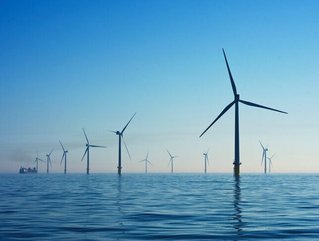How businesses could hold the key to zero-carbon energy

It is fair to say that when it comes to the energy market - we have experienced one of the most volatile periods of time in recent memory. Businesses have struggled with the impact of rising wholesale energy costs - in our recent Business Energy Tracker report, 77% of large organisations said that energy was now their top business risk.
Policymakers have now put short term plans in place to offer some relief from rising energy prices, including the Energy Bill Relief Scheme (EBRS), which was implemented in October 2022. However, as we enter 2023, it’s clear that a longer-term and more sustainable approach is needed to help businesses reduce energy demand and limit their exposure to the global markets.
The good news is that many businesses are already taking control of their own energy future. Many of these are doing so by investing in sustainable on-site generation. In fact, in the Business Energy Tracker, more than a quarter (27%) of respondents said they are planning to invest in this measure to combat energy risk.
It’s easy to see why. Not only does it provide businesses with a route to lower energy costs, increased self-sufficiency and reduced dependency on the grid, it also plays a significant role in reducing emissions.
But, taking this further, what if there was a future where businesses are not only more self-sufficient, but where the power they generate could help reduce energy costs and the UK’s reliance on imported natural gas? How important a role could businesses play in supporting a changing, decarbonised and decentralised energy system that is powered by renewables?
This is something our latest report - The Future of Energy: The critical role of business in a zero-carbon world - investigated.
Towards a business-powered future?
The report uses new modelling to assess whether on-site generation technologies, including wind, solar photovoltaic (PV), battery storage, biogas and biomethane, could feasibly replace the electricity generated from imported natural gas by 2035. It was based on the projection from the Climate Change Committee’s Sixth Carbon Budget that, by that date, the UK would require 16 TWh of power from imported natural gas.
The scenarios explored in the report show that by 2035:
- On-site wind capacity within commercial and industrial facilities could reach between 6 and 29 GW
- Installed roof-top solar PV could account for 6.5 GW
- Biogas power generation could be up to 16 TWh
- Hydrogen and biomethane injection could be close to 33 and 7.5 TWh, respectively
In addition, the report predicted that having more business-generated power will lower energy costs, with the overall levelised cost of electricity for the proposed options ranging between £49 and £261/MWh, lower than the wholesale prices we’ve seen recently. Crucially, it will also support the net zero ambition, with emissions savings of up to 6.7 MtCO2/year.
It also shows that businesses who are investing in sustainable on-site generation technology now will reap significant benefits, by future-proofing their operations, cutting energy costs and reducing exposure to volatility in the marketplace.
In short, the power generated by businesses has the potential to revolutionise the status quo and set the UK on the path to decarbonisation and energy independence.
Unlocking the potential of energy in business
What this report shows is that businesses really do have the power to shape our energy future. However, achieving thisfo support it, such as incentives for hydrogen injection and tax deduction for equipment purchases, which could further encourage businesses’ involvement in energy production.
Businesses will also need to adapt - and have support to do so - for example, modifying production schedules to make use of renewable intermittent electricity generation surplus and to ensure they can better integrate with their surrounding communities.
However, what we wanted to demonstrate was the potential. And, we believe that this modelling provides a compelling case for policymakers to encourage more businesses to be part of the 2035 zero-carbon system and contribute to the national agenda of energy independence, lower costs and net zero - both now and in the future.
The Future of Energy: The critical role of business in a zero-carbon world, can be downloaded here.






